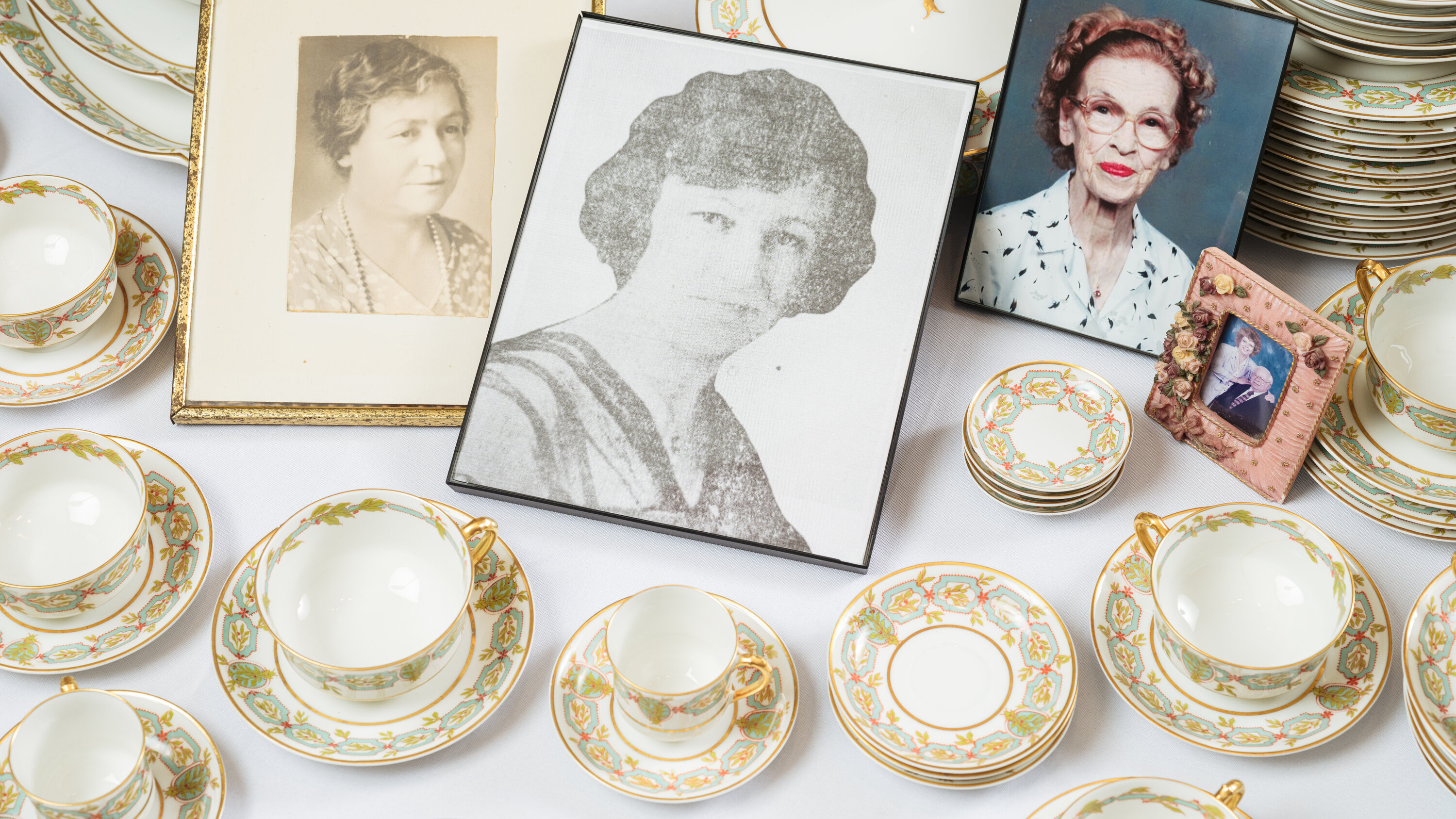F
or over a century, Ashley Dumulong's family has treasured a delicate set of fine china with a laurel leaf pattern. The dishes have been passed down from woman to woman, each one carefully repairing any chips or breaks that occurred along the way. When Ashley accidentally broke a berry bowl, she felt a pang of guilt and considered buying a replacement on eBay, but ultimately decided to mend it herself using super glue.
This set of fine china is just one example of the many discarded treasures that can be found in thrift shops and estate sales. Antique dealers report that they no longer accept china due to its lack of popularity, and storage units and landfills are filled with these once-valued objects. Yet, as Ashley's story shows, these dishes hold a special significance for those who own them.
The history of fine china is closely tied to the evolution of American culture and society. In the early 20th century, fine china was a status symbol, and families would spend a significant portion of their income on tableware. However, as women's roles changed and dining habits became less formal, the demand for fine china began to decline.
Ashley's great-great-grandmother, Laura Jane Briggs, immigrated to the United States in 1906 with her three children, carrying only $10. Despite their poverty, she was able to acquire a set of Haviland & Company china, which would become a treasured family heirloom. The dishes were made in Limoges, France, and featured intricate designs that reflected the family's aspirations for a better life.
As the years passed, the china was broken and repaired by each successive generation of women in Ashley's family. However, as dining habits continued to change and families moved into smaller spaces, the value placed on fine china began to decline. By the 1960s, the bridal market had become a major driver of sales, but even this market has all but dried up.
Today, Ashley is struggling to pass down her family's history to her sons, who show little interest in preserving the delicate set of fine china. As she reflects on the significance of these objects, she realizes that they represent more than just a collection of dishes – they are a symbol of her family's struggles and triumphs.
Nicolas Dumulong, Ashley's 21-year-old son, is an apprentice mechanic who has little connection to his great-grandmother or grandmother. While he respects the importance of the china to his mother, he doesn't see himself continuing the tradition. As Ashley looks to the future, she wonders how her family's history will be remembered – and whether the delicate set of fine china will continue to hold a special place in their hearts.














